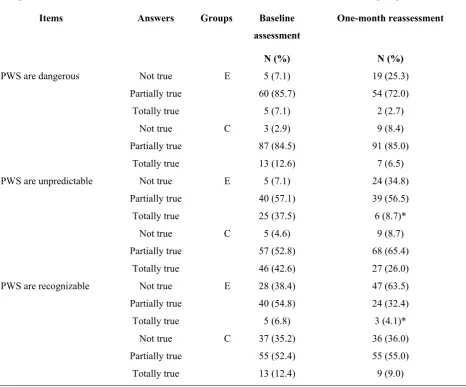Improving Psychology Students’ Attitudes Toward People With Schizophrenia: A Quasi Randomized Controlled Study
Full text
Figure




Related documents
If the original data contains a real (i.e., not a random effect) dependency between data points and labels, then: (1) a significant classifier f will use such information to achieve
This, along with sociological evidence on French elites, suggests a relation between board composition and the CEO’s identity: ENA graduate CEOs may be more likely to appoint
Conduct 4 factor analysis of variance to determine effect of geographic location, length, age and sex of goats on fibre
In the current study, we tried to evaluate the association of “quality of life” with socio- demographic and clinical factors in RAI-treated DTC patients. In the field
We bring insights from the literature on association measures used in data mining and provide a thorough analysis of the differential characteristics of a larger set of
The above results indicate that the majority of employees in the organisation were in agreement with the role that HR should play in a performance management process with 85
Topic: Using the Leviton VRCOP Plug-In Serial Interface Module ASCII commands to control the Kwikset SmartCode ® Z-Wave Deadbolt or Lever Locks. Section 1) Introduction..
A predesigned proforma was used to obtain information on the degree of consanguinity, maternal age, parity, mode of conception, maternal complications, family history